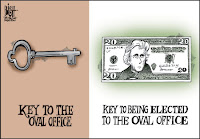 The Times News
The Times News We appeared at a Nesquehoning town council meeting to express concerns over the punishments we endured while skating. My peers were arrested, fined, and treated as second-class athletes because of the way skating in perceived by the public and the police (note, many will scoff even at my use of the a-word). When we proposed creating a skatepark, officials assured us such a haven; but when those promises broke like a wooden skate-deck, we grew very abhorrent and negligent to the law.
Today, while skating has grown in popularity, much of the public disregard remains unchanged. Children remain free to toss a football from street corner to street corner and adults ride bicycles along the heavily traveled and narrow roads of Rt. 209, but skating at schools, parking lots, and along curbs remains a crime. Recently two young teens were arrested for skating in the unrestricted areas – that being every parcel of land – in Lansford.
This is why I urge the citizens to support a skatepark in Lansford. When people want to play football – rather than engage in drug use or street crime – we build them a field. Why should the same parallel not hold fast for skating?
As a teacher at Panther Valley, I promise to "put my money where my mouth is" by helping advise the students and citizens who wish to provide leadership to this project, and help them find success and a safe haven that my friends and I could never locate.








